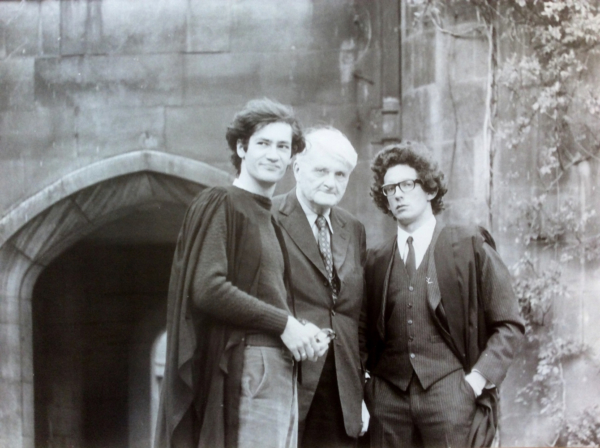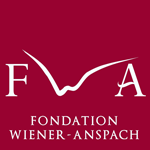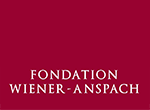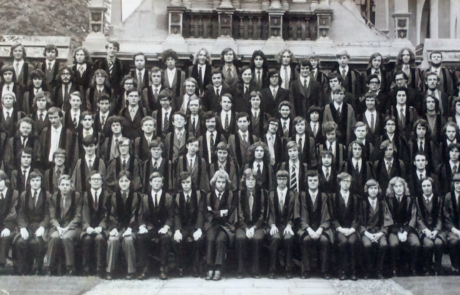
Pierre Vaesen, Honorary Ambassador of Belgium, recalls his experience in the Seventies at the University of Cambridge and coments on his long diplomatic career.
You left with a scholarship from the Foundation for the 1973/74 academic year. How, at that time, did you find this opportunity? Was it a fellowship program that was much talked about?
I can honestly say there wasn’t much talk about it. We were but a few candidates, I believe, and I think the Foundation, being fairly new, was looking for candidates. At that time more than forty years ago, such things as the Erasmus program didn’t exist and there was little exchange occurring, even between European universities. I had already decided that I wanted to have an international or European career and so I thought it would be a nice experience to be able to extend my studies abroad. I was studying Law and International Law at the ULB and so I became aware of what kind of opportunities there were through message boards, I believe.
Why did you choose Cambridge rather than Oxford, then?
At the time I think there was already a pre-established program, and I didn’t really have a choice. At Cambridge there was a reputable program in International and European Law. It was a one-year program that could be extended to two years. I opted for one year as I had to take entrance exams for the diplomatic corps and I still had to do military service which was still mandatory at the time.
You left for Cambridge the same year the United Kingdom joined the European Union. Was the topic discussed frequently and did it affect your year of study there in any way?
As a matter of fact, what dominated the news during my time in England (it was an academic year from September to August of the following year) was the domestic political crisis. There was a general strike which lasted ten months and which brought down the government. It was a miners’ strike and there was even a general blackout. I remember walking the streets of Cambridge with flashlights. In department stores oil lamps were lit. It was really a punishing strike that paralyzed the country’s economy. There were waves of protests. Finally, the Heath government was forced to call elections that it eventually lost. So that was the political and psychological context there. The UK’s entry into the European Union came and went completely unnoticed. Due to greater concerns, it was not a major topic of interest.
After a career of more than forty years in the diplomatic corps, how has the profession changed? I assume there must now be many more women diplomats. What are some of the major changes you’ve observed?
Unfortunately there are still too few women diplomats. One of the reasons being that it’s very difficult to reconcile one’s private and family life with essentially a nomadic life. You have to be willing to change countries every four years, and so it’s not easy to find a partner, be they a husband or a wife, who is willing to follow you. You may say that the issue is now just as sensitive for a woman as it is for a man since there are more and more women who want to invest in and further their own careers.
I left on my first mission, it was forbidden for spouses to work because it was felt that it was either dangerous or incompatible with the dignity and function of such a post. This was what the mentality was like some forty years ago.
The system now has greatly changed. Although there are now services to help spouses find jobs, it still remains difficult to develop a career. It was a huge problem to find women diplomats precisely for these reasons, but it’s becoming a problem to recruit men diplomats for the same reasons. Even if the profession has changed greatly, the basic principles remain the same. A career in diplomacy is essentially one that promotes mainly bilateral relations from country to country or multilateral relations if we are in an international body. Although there has been talk of the death of diplomacy, the opposite is in fact the case. I think we need diplomats more than ever before. International relations have now expanded to many areas that were once considered solely within a national domain. Living in a globalized world means that there is a need for more diplomatic relations in all sectors, be they economic, scientific, academic or cultural. There are dozens of areas in which diplomatic relations are manifest. The changes have also been of a technological nature. Technology has greatly changed and along with it, a considerable expansion of focus areas.
As a representative of the Belgian state, have you often had to face questions about the specifics of Belgium and its community issues.
Yes, of course. Each country has its difficulties and challenges, naturally. In discussing the specifics of Belgium with foreigners, the real challenge lay in explaining the Belgian state structure, which as we know is complicated, but that’s the price paid to be able to live together peacefully. I’ve often made the analogy that a diplomat is a bit of a travelling salesman. We don’t sell soap, but we do sell the image of our country since that is what is ultimately important if we want to develop relations in any field. Somehow it all depends on the image of your country, whether it’s positive or not.
Some countries are better at creating a better image than others. For example, our French friends have a strong image based on quality brands and products. This may sounds a bit ridiculous and superficial, but all this helps to give an overall positive picture of your country. Italians do it very well and other countries too, such as Germany. In conclusion, the work of a diplomat includes, among many other tasks, selling the image of our country almost as a brand and making the world receptive to that image.



